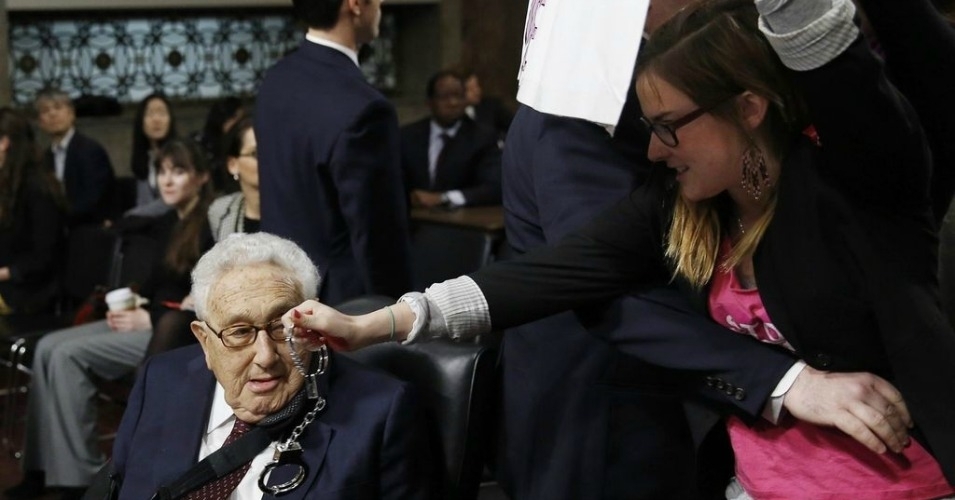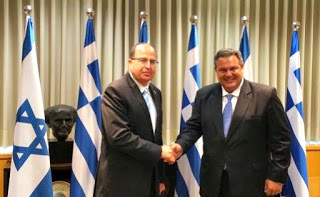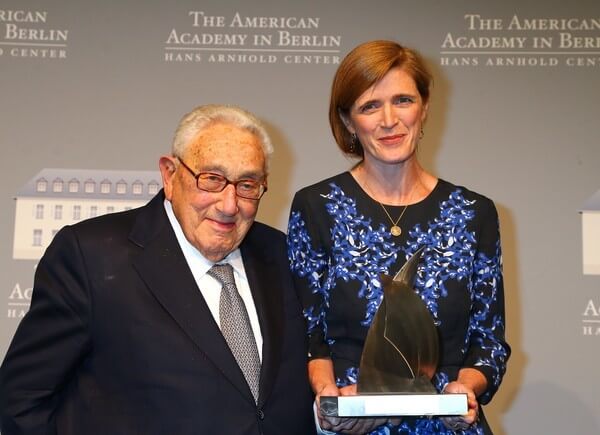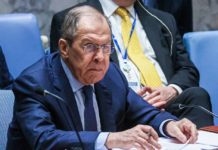(First Published on 11 September of 2007)
Henry Kissinger: Realist, or Neocon?
By Philip Giraldi
One of the most disturbing attributes of the neoconservatives is their willingness to subordinate the United States’ national interests to those of Israel. To be sure, the attempt is frequently made to demonstrate that the two nations’ interests are identical, but a careful analysis of the impact of Israel’s domestic and foreign policies can only conclude that the relationship has been detrimental to the United States. To cite only one example, Washington’s counter-terrorism policy has been shaped by Israel, which insists that national liberation movements like Hamas and Hezbollah must be treated as terrorists and can only be dealt with by force. This has meant that the United States, which should have dialogue with adversaries worldwide, is hamstrung by its political commitment to Tel Aviv. It also means that any progress toward the establishment of a Palestinian state is stillborn, which may be what Likud wants, but it is not in America’s interests. That the neocon agenda might not serve Israel’s true interests either means that the tragedy is a double one.
It is now obvious that the neocons have been marketing their agenda under deceptive labels and meticulously planning their takeover of the U.S. foreign policy apparatus to advance their Middle Eastern program. The new book by John Mearsheimer and Stephen Walt on the Israel Lobby provides some fresh insights into how American interests have been consistently betrayed by politicians and government officials who have fought to protect Israel at all costs. Mearsheimer and Walt reveal, inter alia, that Henry Kissinger, while national security adviser and secretary of state between 1969 and 1977, might have been one of the first neocons in deed if not in name. Kissinger, who prefers to describe himself as a “realist,” reportedly took it upon himself to defend Israeli positions even when those positions were in no way linked to American interests in the region.
In 1972, Kissinger and Nixon ceded to Israel a veto over any peace proposals that Washington might be considering in dealing with the Arab states, basically accepting the principle that Tel Aviv would call all the shots in the region without regard to American interests. In October 1973, the same duo airlifted military supplies to Israel during the Yom Kippur War to the tune of $2.2 billion in impromptu aid, leading to the Arab oil embargo and its catastrophic impact on the U.S. economy, which amounted to nearly $50 billion in 1974 alone (equivalent to $140 billion in 2000 dollars).
In late October 1973 Kissinger was sent to Moscow to negotiate with Soviet leader Leonid Brezhnev to pursue a comprehensive peace process for the Middle East, but he ignored Nixon’s instructions and pressed instead for a cease-fire that left Israel dominant and destroyed any chance for a multilateral peace effort. According to Mearsheimer and Walt, “The American-compiled minutes of the three meetings that Kissinger attended with Brezhnev unequivocally show that he accurately and repeatedly represented Israeli interests to Moscow, almost totally contrary to Nixon’s preferences.” When the UN Security Council subsequently passed a cease-fire resolution, Kissinger allowed the Israelis to ignore it for 12 hours so they could consolidate their gains.
In 1975, while secretary of state, Kissinger signed a memorandum of understanding that pledged the U.S. to provide for Israel’s oil needs in the event of a crisis and to finance and stock a strategic reserve. He also agreed that Washington would not “recognize or negotiate with” the PLO as long as the group refused to recognize Israel’s right to exist. This made it impossible to talk to the only group that represented the aspirations of most Palestinians, a dialogue that the Israelis wished to derail but which would have served America’s interests. Kissinger’s last year as secretary of state also saw Israel’s aid from the U.S. skyrocket from $1.9 billion in 1975 to $6.29 billion for 1976.
One would think that Kissinger’s disastrous handling of Vietnam would have been enough for any one man, but he is clearly seeking to leave his mark on the Middle East as well. He continues to be a troubling presence in wars both ongoing and intended. Even though he rarely mentions Israel, preferring to couch his arguments in terms of U.S. national interests, the positions he takes would undoubtedly be welcome in Tel Aviv. Kissinger’s frequent op-eds in leading newspapers support the Iraq war, the current surge, and an aggressive foreign policy directed against Iran. Such is his perspicacity that in January 2002 he argued that the U.S. should “focus on the overthrow of the Saddam Hussein regime in Iraq in order to change the regional dynamics by showing America’s determination to defend regional stability, its interests, and its friends. (This would also send a strong message to other rogue states).” Concerning Iraq, he has also been quoted as saying “Victory is the only meaningful exit strategy.”
Kissinger has also embraced the neocon concept of “Islamofascism,” arguing that the U.S. should stay the course in Iraq, writing in August 2005, “The war in Iraq is less about geopolitics than about the clash of ideologies, cultures, and religious beliefs. Because of the long reach of the Islamist challenge, the outcome in Iraq will have an even deeper significance than that in Vietnam. If a Taliban-type government or a fundamentalist radical state were to emerge in Baghdad or any part of Iraq, shock waves would ripple through the Islamic world. Radical forces in Islamic countries or Islamic minorities in non-Islamic states would be emboldened in their attacks on existing governments. The safety and internal stability of all societies within reach of militant Islam would be imperiled.” One might note in passing that if Kissinger were an analyst at the CIA or the DIA rather than a former secretary of state his explanation of the situation in the Middle East would likely be graded a D-minus. Like all neoconservatives, he looks for an explanation that confirms his preexisting notions, in this case that militant Islam is the cause of conflict rather than a byproduct of genuine grievances.
Kissinger is reported to be a frequent visitor to the White House, most particularly to the office of Vice President Dick Cheney, and has been a driving force to confront Iran. According to at least one source, he is the principal architect of the new policy to create a regional alliance of Arab states opposed to Iran while at the same time increasing direct pressure on the government in Tehran. President George W. Bush, Vice President Cheney, and Secretary of State Condoleezza Rice have adopted another recommendation from Kissinger that in effect abandons the “freedom agenda” for Iraq and the Arab Middle East in favor of focusing on Iran as a strategic menace to the entire region. The shift in emphasis means that during Bush’s last year there will be a major effort to resolve the Iranian nuclear challenge using whatever means are necessary. As diplomacy so far has consisted of shouting matches staking out adversarial positions, the only options that would be viewed as viable by the White House are military in nature. Kissinger has convinced Bush and Cheney that bringing democratic institutions to Arabs cannot be accomplished in the near future. He argues that simplifying the equation by viewing Iran as a strategic threat to the Middle East in general and to Arab dictatorships such as Saudi Arabia and Egypt in particular narrows the range of options and protects all U.S. allies in the region. Relying on the Kissinger rationale, Vice President Cheney has successfully argued for retaliatory measures against Iran when an Iranian “smoking gun” can be identified.











